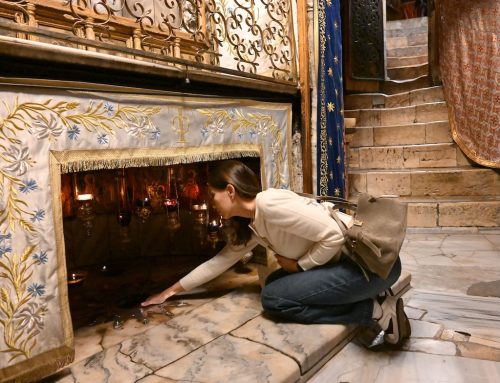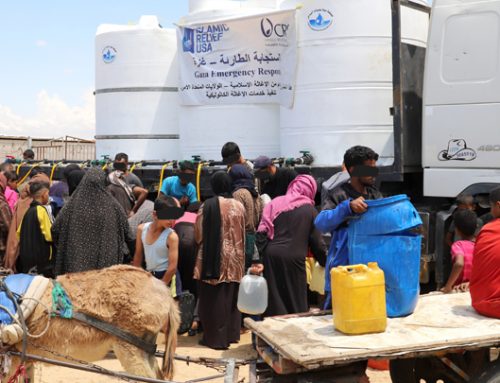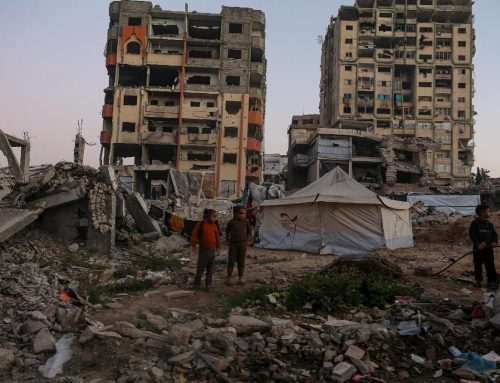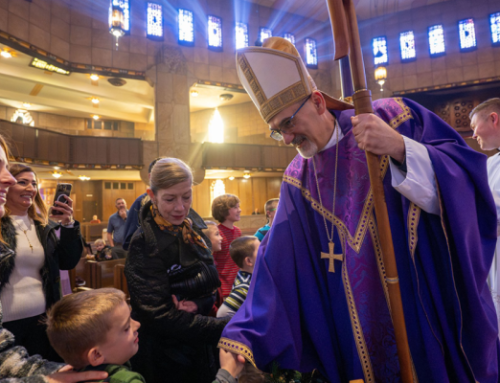
GENEVA, 18 December 2012 (LWI) – The long-standing engagement of The Lutheran World Federation (LWF) in serving displaced people across the world was part of the discussions at a United Nations High Commissioner for Refugees (UNHCR) dialogue with faith-based organizations on caring for refugees.
LWF President Bishop Dr Munib A. Younan and General Secretary Rev. Martin Junge were among the 400 participants at the UNHCR fifth Dialogue on Protection Challenges, 12-13 December in Geneva.
“For the vast majority of uprooted people, there are few things as powerful as their faith in helping them cope with fear, loss, separation and destitution,” said UN High Commissioner for Refugees António Guterres, in his opening address at the Dialogue.
It was the first time the High Commissioner had convened a dialogue with particular focus on the contribution of faith-based organizations in caring for refugees. Participants included representatives from Christian, Muslim, Jewish and Buddhist faiths, and from state and non-governmental organizations (NGO).
“To be a secular organization dealing with refugees does not mean UNHCR should ignore religion, but we must respect and value the faith of the people we care for. The High Commissioner had invited a select group of faith leaders to a closed session prior to the dialogue. Reflecting on the session, the LWF president said it “had shown that religions have many commonalities. The question remained, however: how should we translate those commonalities into concrete partnerships?” The LWF is itself the fifth largest implementing partner of the UNHCR and cares for almost 1.5 million refugees in the world. The work of the LWF is rooted in the biblical and theological notion of “welcoming the stranger,” Younan noted. Younan said he had underlined at the closed session the value of diapraxis—dialogue through service in which peace and understanding are built through practical engagement together for the spiritual and physical well-being of the whole human being. At the Dialogue meeting, representatives from all faiths reiterated the message of welcoming the stranger irrespective of the individual’s creed. They also emphasized impartiality of service to all people in need. The UNHCR does, as a principle, work on a secular basis and does not support religious activities. From that perspective the Dialogue meeting bringing together faith leaders and state and UN representatives was of particular importance. “Secularity is inherent in humanitarianism. We can work with faith-based organizations doing humanitarian things. We tend to draw the line between this and the UNHCR supporting religious activities,” said the Deputy High Commissioner for Refugees T. Alexander Aleinikoff. “I think the dialogue has put pressure on these assumptions. It has almost said that a secular humanitarianism is partial because faith means a lot to people and one cannot not take faith into account,” he added. Governments Recognize Religions’ Contribution UN member state representatives also praised the role of faith-based organizations in caring for refugees. Tanzania’s Deputy Minister for Home Affairs Mr Pereira A. Silima commended LWF’s work through the Tanganyika Christian Refugee Service (TCRS). “In Tanzania, we have experience in refugee emergencies and faith-based organizations have rendered their support and offered hope and comfort,” the minister said. TCRS, an associate LWF program under the Department for World Service “is on the forefront to offer assistance before agencies arrive. They offer hosting and ask their members to collect [funds],” Silima said, adding “this is noted by the state.” States Grant Asylum but Communities Create Hospitality A central theme of the Dialogue was the role of faith-based organizations as welcoming communities and the importance of the principle of impartiality when working with refugees. Whereas it is states that grant asylum, the High Commissioner for Refugees emphasized that “faith-based organizations and local religious institutions can help create and strengthen welcoming communities for refugees and other persons of concern to UNHCR.” But welcoming communities is only part of the solution, said the LWF general secretary. “We need to not only create space in the hearts and minds of people. Churches have a particular role to play advocating for physical space for refugees in our societies. We need to know how to interact with member states and governments concretely,” said Junge. “We have a two-fold role: As implementing partners but also in mobilizing politicians when it comes to solutions.” Junge particularly mentioned prevention of the root cause of refugees and the focus on gender equality as areas of advocacy for faith-based organizations. Need for Religious Literacy Another prominent issue discussed was the need for “religious literacy”—better understanding of specific religions and religion in general. As co-moderator of one of the round tables at the Dialogue meeting, the LWF general secretary noted that “we need to create a better understanding across religions of who ‘the other’ is but also what religious literacy means to all the actors involved in refugee work and how to relate to their faiths.” This notion was highlighted in the High Commissioner’s closing address, when he announced that one concrete follow-up to this year’s Dialogue would be a guide on religious literacy with a guidance note and training for UNHCR staff. “The UNHCR should have its own faith literacy program,” Guterres concluded.





